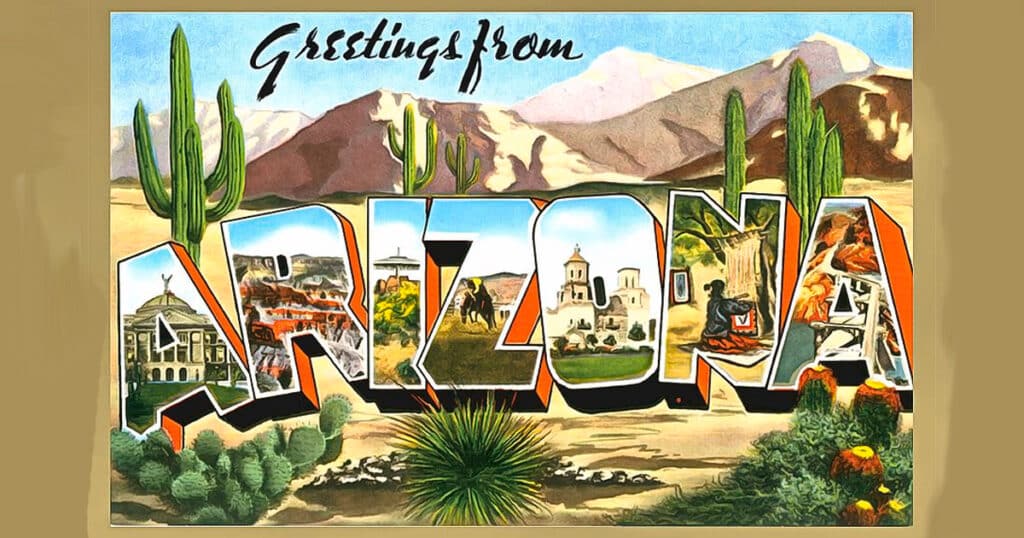
Arizona’s Proposed Reversal in School Choice Would Hurt Taxpayers, Not Just Students and Their Families
Three decades ago, Arizona policymakers created opportunities for educators to start new schools and for families to choose between them. Unfortunately, though, the state’s current governor aims to sharply reverse Arizona’s embrace of educational choice.
Gov. Katie Hobbs, a Democrat, has called for the repeal of two programs: scholarship tax credits and education savings accounts.
But reinstituting the tyranny of ZIP codes in assigning schooling would throw the lives of thousands of Arizona children into academic and social chaos at a huge expense to taxpayers.
In 1994, Arizona lawmakers created a statewide open-enrollment statute allowing parents to choose between public schools and the nation’s most robust charter school law. In 1997, lawmakers followed with the creation of scholarship tax credits to provide students with assistance to attend private schools.
In 2011, Arizona lawmakers created the Empowerment Scholarship Accounts program, or ESA, providing families with multiple ways to use them for their children’s education. Participating families can receive a portion of the funds that would have gone to a public school. All Arizona students became eligible to participate in this program in 2022.
Arizona teachers and families transformed the state from a one-size-fits-few system in which only the wealthy could access high-demand public or private schools. Today, Arizona policy supports a many-sizes-fit-more array of district, private, and charter school options where families of all incomes can access a variety of schools.
A 2017 study found that most K-8 students in the Phoenix area attended a school other than their zoned district school. Participants in open enrollment (students attending district schools outside their zoned school option) outnumbered charter school students almost 2 to 1, despite Arizona having the nation’s largest charter school sector.
State funding follows a child to his or her selected school; district schools both gain and lose students through transfers to and from other districts, charters, and private schools. State funding follows the child to district and charter schools, and parents may access nonpublic schooling options through the tax credit and ESA programs.
Opponents claim that choice will harm district schools, but decades of data clearly indicate otherwise. During the period in which all six of the Nation’s Report Card exams in math, reading, and science were available, Arizona alone made statistically significant gains on all six.
An analysis of student learning gains performed by Stanford University scholars found that Arizona students had the fastest rate of academic growth between 2008 and 2018. Finally, spending per pupil in Arizona’s public schools currently stands at an all-time high.
Despite all of this success, Hobbs has endorsed a bill that would regulate private schools to an intolerable degree and repeal education savings accounts. Hobbs’ allies in the Legislature also filed bills designed to hamstring the state’s successful charter school program.
These reactionary impulses could have disastrous consequences for families and taxpayers. Arizona’s well-to-do residents still will be able to access private schools or carefully buy property within the attendance boundaries of high-demand district schools.
The rest of Arizona’s residents, however, would be left to eat whatever sort of cake their ZIP code-assigned school chooses to serve. Worse still, the incentives to produce learning gains would evaporate as many Arizona families returned to being indentured to their ZIP codes.
Such a reversal not only would be inhumane to families, but taxpayers would bear the brunt of increased costs. Arizona taxpayers can finance two ESA students for the average cost of one student in a district school.
Why would taxpayers want to spend twice as much to force a family to send their child to a school that wasn’t their first choice? Paying half as much to let families choose their best fit in a school not only promotes better learning but is a bargain for taxpayers.
Public school districts in Arizona, bound by absurd levels of state, federal, and local red tape, are hardly prepared to accommodate tens of thousands of new students. Arizona districts have struggled to hire enough teachers for the current levels of enrollment. This is despite the fact that average per-pupil funding is at an all-time high for the state.
Teachers in public school districts publicly complain that policymakers have “strangled the joy out of the profession.” The answer to the teacher shortage lies in deregulating school districts to compete rather than in attempting to kill competition from them.
Hobbs’ school choice proposals would cruelly disrupt the lives of families at a large expense to taxpayers. The governor attended private school and sent her own child to an Arizona charter school, making her proposals hypocritical as well as costly and inhumane.
Arizona families pay their taxes, and they should have the opportunity to select a school that matches the needs and aspirations of their children.


